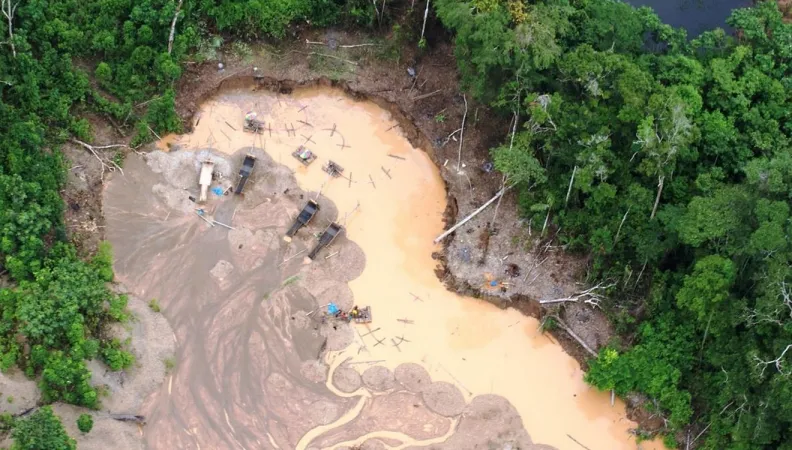Share the page
Protecting and Raising the Profile of Environmentalists in Amazonia
Published on

In Peru's Madre de Dios region, women and men are risking their lives to defend their land and biodiversity in the face of illegal mining. The Inclusive Protection of Environmental Defenders in the Amazonia region (PIDDA) project aims to ensure that their rights are respected and that they participate in defining public policy, with a particular focus on gender and intercultural issues.
Located in Peruvian Amazonia, Madre de Dios is one of the world’s most biodiverse regions: 3.8 million hectares are covered by protected natural areas which are home to seven indigenous groups. However, this area is also a hotspot for illegal mining and related illegal activities, such as gold mining, which contaminates water sources with mercury and contributes significantly to deforestation. As a result, socio-environmental conflicts are on the rise, and biodiversity and environmental defenders (EDs) are under increasing threat.
According to reports from Global Witness, Peru is among the top ten most dangerous countries in the world for EDs: 42 people were killed between 2014 and 2022, with more than half having lived in the Amazon. In April, Victorio Dariquebe, a forest ranger from the Amarakaeri Communal Reserve in Madre de Dios, was murdered.
See also: Protecting Biodiversity: the Key Role of Indigenous Communities
The project Inclusive Protection of Environmental Defenders in the Amazonia Region (PIDDA), led by IUCN NL and the Sociedad Peruana de Derecho Ambiental (Peruvian Society for Environmental Law - SPDA), with support from AFD, was launched in mid-2023. It aims to help improve and apply the protection system for EDs, in place in Peru since 2018, as well as to guarantee their right to access information, justice and mechanisms of citizen participation in environmental issues.
The ultimate aim is to enable citizens to participate in defining and monitoring public policies.
See also: "Living Things Deserve Rights"
Involving local players
To improve the situation for DEs in Madre de Dios, stakeholders of the PIDDA project are working closely with local organizations, such as the Native Federation of the Madre de Dios River and Tributaries (FENAMAD) and the Management Committee of the Tambopata National Reserve (CDG), to strengthen their leadership skills in particular. To promote their actions and thus protect them more effectively, the project also organizes capacity-building activities on environmental issues for local and national journalists, as well as for social communicators.
The high profile of the project’s Peruvian partner, the SPDA, has led to the involvement of key institutional bodies, including the Ministry of Justice and Human Rights, the Ministry of Women and Vulnerable Populations, and the Ministry of the Environment, to ensure that changes are made to regulatory frameworks and the public resources needed to enforce them are provided.
See also: Passing Traditional Knowledge from Mother to Child, to Protect the Environment
Women on the front line
As part of the PIDDA project, a study was conducted by IUCN NL and Eliana Rojas Torres, a coordinator of climate action programs, to document the issues faced by women EDs in the Madre de Dios region. This research shed light on the legal and administrative barriers, as well as the many forms of gender-based violence (GBV), faced by these women: obstruction of freedom of movement, intimidation or lawsuits resulting in lengthy legal battles, extortion, psychological and physical violence, including violence against their children, and so on.
“There is an urgent need to highlight and combat violence against women in pressurized environments, where rights violations are increasing on a global scale,” says Karim Bourtel, project manager at AFD. “To achieve this, the mechanisms put in place by governments and civil society to protect rights defenders – including self-protection measures – must take into account the link between environmental degradation and GBV, by adopting gender-specific and intercultural policies (for indigenous women, for example). Without this detailed level of analysis, there is a risk of minimizing the specific impacts on women, and these issues will continue to fly under the radar.”
The situation in Madre de Dios for both men and women typifies the struggles faced by environmental defenders around the world. It is vital that we ensure their protection and safeguard their role as leaders and decision-makers in protecting biodiversity.
